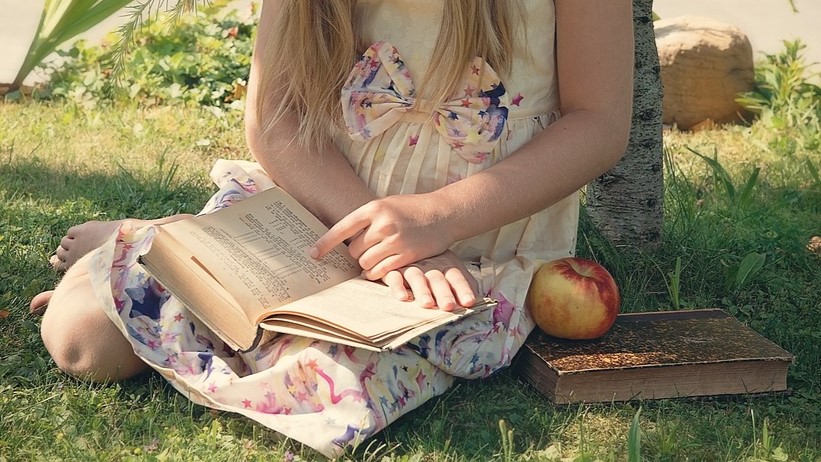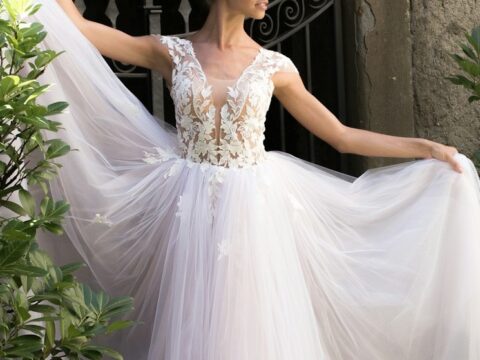Nothing sparks my storytelling juices quite like watching a new movie. Books are good inspiration too, but the one-sitting format and cinematic excitement of a great flick can leave me thinking about a story for days. Both the good parts and the parts I would have written differently. Just recently I watched a movie that got me thinking about my strong opinions on what makes a strong female protagonist . . .
My Thoughts on Matilda the Musical
Several people I know have been buzzing about the newly released Matilda the Musical on Netflix. Andy and I finally got around to watching it the other day, and we had a blast. Seriously, it’s a fun movie! Whoever styled the costumes, sets, and overall look of Matilda the Musical deserves an award in my opinion because it looked incredible. That said, the story itself and the character development weren’t my cup of tea.
I’m a diehard fan of Danny DeVito’s Matilda (1996), so obviously I’m biased. I did have a great time watching the 2022 movie, but I also walked away feeling dissatisfied with the adaptation for reasons I couldn’t quite articulate. Maybe it was because the film’s incredible styling totally outshone the acting (never a good sign). Or maybe there were so many musical numbers that the plot somehow dragged despite packing SO MUCH DRAMA into every single scene. Perhaps the 1996 movie was cast so ridiculously well that the new version just suffered by comparison.
I spent days thinking about this because I just wanted to know WHY? Why did it fall short for me? As I pondered the reasons why I love the original Matilda, I finally figured out the root of the problem.
The 2022 Matilda Is a Flat Character
Before anyone explodes with outrage, let me explain! I actually think that Alisha Weir makes a perfect Matilda Wormwood. Not only does she look the part and have a wonderful voice, she also brings so much charisma to the role that we couldn’t help but love her. The real problem lies in the way Matilda was written.
When I use the term “flat character” what I really mean is that this character was too perfect. She pretty much comes out of the womb a genius with no flaws. We don’t get to see her discovering her love of books or developing her courage to stand up to the crumby adults in her life. She just blasts onto the screen dishing out snappy comebacks and shouting down the terrifying Miss Trunchbull right from the beginning. Even when she discovers her telekinesis, she pretty much masters her powers in one single scene.

What I’m getting at is that the writers of this musical made a very critical error. In their excitement to make Matilda a strong, unique, butt-kicking girl, they made her so awesome that she didn’t have anywhere to go. She escapes her difficult situation by the end of the movie, but the Matilda we meet at the beginning is basically the same girl we get at the end. This is a problem because characters that are too perfect are frankly . . . boring. And female protagonists that don’t grow over the course of their story feel stale instead of strong because their awesomeness wasn’t earned.
So How Does One Write a Legitimately Strong Female Protagonist?
I have a lot of thoughts on this, and unsurprisingly, Mara Wilson’s original performance as Matilda in 1996 is a fantastic blueprint of how strong female protagonists are built. This formula boils down to five tried-and-true ingredients:
1. A Strong Female Protagonist Has a Growth Arc
What better place to start than here? Because yes, the most important aspect of becoming a strong female protagonist is earning your strength. To be fair, there are plenty of fun and interesting female characters who are flat in stories, and that’s perfectly fine. Sometimes we meet fictional women at the end of their growth arcs, especially if they’re in a mentor role. But if you’re the protagonist of a story? You sure as heck better grow through the course of your journey. Otherwise what’s the point?
This is the biggest difference I saw between Alisha Weir’s Matilda and Mara Wilson’s Matilda. Because the latter genuinely grew in her movie. Sure, she’s a prodigy who devours huge books and does crazy math problems. But she also starts out as a shy, timid, passive young girl. As her adventure unfolds, she learns how to stand up for herself, harness her powers and her own inner strength, and find the bravery to change the circumstances around her. THAT is the essence of any strong female protagonist. Watching her grow up is the point of the whole movie.

2. She Also Has Flaws and Weaknesses as Well as Strengths
It’s vital for female protagonists to have weaknesses to work on over the course of their stories. There’s a reason why the Mary Sue—any obnoxiously perfect female character—is so universally hated. And yet I’ve noticed that Mary Sues are creeping into modern movies everywhere. Matilda the Musical was clearly a culprit, but what about Rey in the latest Star Wars trilogy? Or pretty much any female superhero who’s been introduced in the Marvel Cinematic Universe since Avengers: Endgame? Yeah . . . the Mary Sue is making a pronounced comeback lately, maybe because feminists are so excited to make girls awesome that they’re draining female characters of all relatability. And therefore making them irrelevant rather than inspiring, which really frustrates me.
In contrast, Mara Wilson’s Matilda DOES have flaws to balance out her strengths. She may be the smartest kid around, but she’s not naturally courageous or socially savvy. She’s grown up isolated and alone, and this shows in key parts of the film. And I LOVE that her initial reaction to the Trunchbull is to literally run away and hide. Not only did this make her so relatable, it also made her journey of becoming brave so satisfying to watch. It’s way better to watch an imperfect character struggle and triumph than a cookie-cutter perfect girl easily save the day.
3. And She Has a Distinct Personality
This has become another major issue amongst modern female characters. Having combat skills is not a personality. Neither is being prettier than everyone else—or having big boobs, thanks very much. I swear I will scream out loud the next time I hear somebody call their main character a “strong woman” because she’s a hypersexualized warrior and therefore interesting because men like watching her beat people up. I threw up in my mouth a little just typing that.
No, when I say a personality, I’m talking about the unique details that make a strong female protagonist her own person. Women don’t have to be loud to be interesting, and this is what I loved the most about Mara Wilson’s character in Matilda. She’s not only a bookworm. Matilda is a lover of classics and bright hair ribbons. She totes around a colorful and clearly homemade ragdoll around the house (a prop Mara Wilson actually designed herself). She loves mathematics, is polite and refined with everyone she meets, and would rather make herself a fresh pancake breakfast than suffer through the indignity of canned soup. Matilda isn’t the flashiest girl in the room, but she’s got a memorable, delightful personality.

4. A Strong Female Protagonist Has Backstory and Motivation
The best female characters are who they are because of what they’ve been through. Little girls blossom into fully fledged women by struggling through hard experiences and overcoming obstacles, which is yet another way that viewers can relate to and bond with a truly strong female protagonist. This is how we get to know who a fictional girl really is.
I mentioned before that Matilda the Musical completely skipped Matilda’s entire backstory, and I now realize just how much I missed that piece of the 1996 movie. As a kid I loved watching Matilda overcome her feelings of loneliness by becoming an avid reader and nurturing her beautiful passion for learning. Her biggest motivator for seeking out a library card was her extremely messed up family constantly abusing and neglecting her. These details give us the full picture not just of why Matilda is so smart, but also why she starts out as such a shrinking violet, starved of sunshine and love. While the parents in Matilda the Musical were a barely-mentioned afterthought, Harry and Zinnia Wormwood are the foundation of Mara Wilson’s character. And this matters.
5. Lastly, She Builds Relationships over the Course of Her Story
While there are certainly women who are lone wolves, the vast majority of women in the world highly prioritize their relationships. Unsurprisingly, the best strong female protagonists don’t just fight for themselves; they fight for the people they love. Matilda builds many lovely friendships with the kids at her school, but my favorite relationship is Matilda’s heartwarming chemistry with her teacher, Miss Honey.
This is yet another area where the 2022 movie just didn’t measure up to the excellence of the original. Mara Wilson and Embeth Davidtz are pure magic together. And they have plenty of screen time to develop their wonderful story arc of going from student and teacher to friends to family. It’s their connection that gives Matilda the courage to stand up to the Trunchbull, not just for her own sake, but for Miss Honey’s. Matilda sets out on a personal mission to rescue Miss Honey’s childhood doll, reclaim her old house, and free her teacher from the Trunchbull’s tyranny. If Matilda’s going to use her new powers for anything, the obvious choice is to build a better life for Miss Honey.
And Matilda becomes part of that life too. Matilda’s adoption was kind of tacked on to the end of the 2022 movie like a random afterthought. In contrast, Mara Wilson’s character has actual legal adoption papers in her backpack, which she’s had since she was old enough to Xerox. Apart from showcasing Matilda’s hilarious resourcefulness, this storytelling choice proves that Matilda wanted Miss Honey to be her mom all along. The adoption isn’t a fluke, a split-second choice, or a convenient whim. It’s the final step in Matilda’s journey to actively claim her own happiness.

Bottom Line? Matilda is an Awesome Heroine
I didn’t intend for this post to turn into a review of the two versions of Matilda, but oh well. These things happen. What I’m really saying is that truly strong female protagonists leave a big impression on young readers and movie-watchers, just like Mara Wilson had on me. These are the depictions that stick with you because they’re undeniable role models. They’re strong because they faced their fears and bloomed into the type of women we all want to become. I think every girl deserves a chance to look up to heroines like that. ❧




